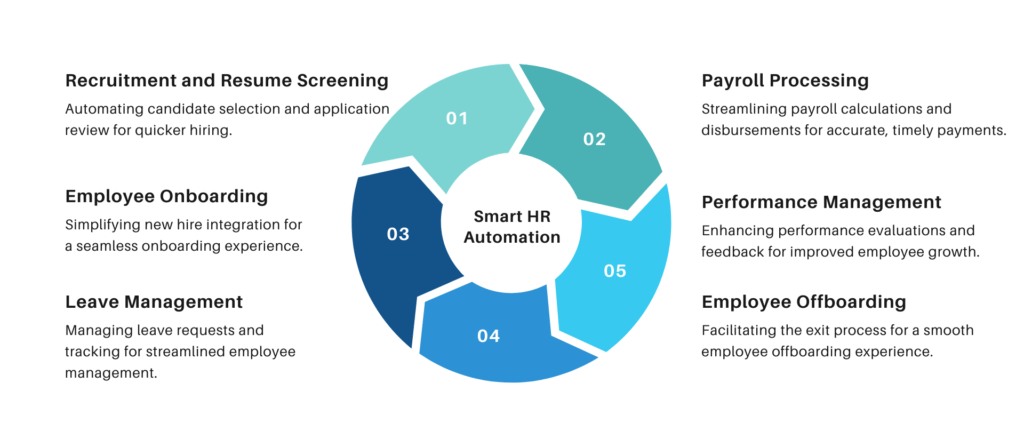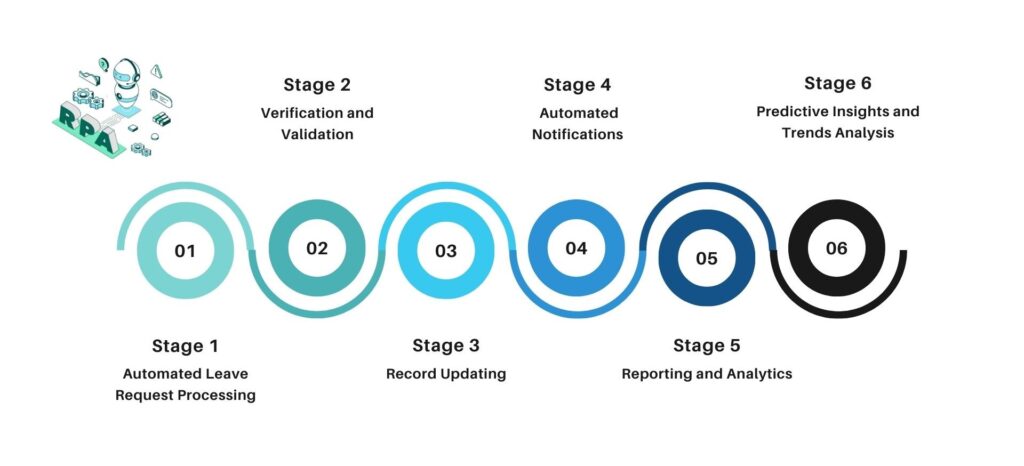HR Functions: Transforming HR Operations with Automation
Challenges and Our Solution
In the HR industry, challenges like identifying and attracting top talent reduce efficiency and create problems. The recruitment process is time-consuming, involving resume reviews, interviews, and coordination of hiring activities. Additionally, onboarding and offboarding employees require coordination across multiple departments, adding to the administrative burden.
Automating aspects of the recruitment process, such as resume screening, candidate sourcing, and interview scheduling, can streamline hiring and improve efficiency. Similarly, automating HR functions in onboarding like system access and training provisioning, and offboarding tasks like access revocation and asset collection, ensures smooth transitions and reduces administrative workload.

What RPA Brings into Repetitive HR Functions
Robotic Process Automation (RPA) in HR involves deploying advanced software robots to handle repetitive and rule-based tasks traditionally managed by human resources teams. These intelligent automation tools are designed to perform tasks like data entry, processing applications, and managing workflows with high precision and efficiency. By taking over these routine processes, RPA enables HR departments to streamline operations, reduce manual workload, and significantly enhance accuracy, ensuring that tasks are completed consistently and error-free.
With RPA in place, HR professionals are liberated from mundane tasks, allowing them to redirect their focus toward more strategic and value-added activities. This shift not only improves overall productivity but also enables HR teams to concentrate on critical areas such as employee development, strategic planning, and enhancing workplace culture. By integrating RPA, organizations can achieve a more efficient HR function, leading to better resource management, faster response times, and ultimately, a more engaged and productive workforce.
RPA in Action: Visual Demonstration
Reporting and Analytics are crucial for optimizing HR processes and making informed decisions. By leveraging automated data collection and analysis, HR departments gain valuable insights into leave trends and patterns. This enables proactive management and strategic planning, ensuring efficient workforce allocation and effective policy adjustments
Everyday HR Tasks Enhanced by RPA
RPA transforms everyday HR functions by automating routine processes, making them faster and more accurate. From handling leave requests to managing payroll, these smart solutions free up HR teams to focus on strategic and value-added activities
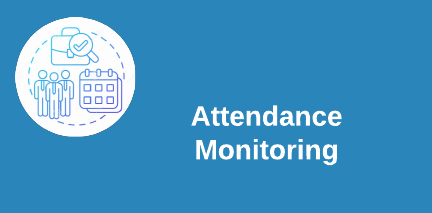
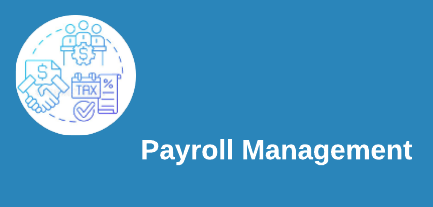
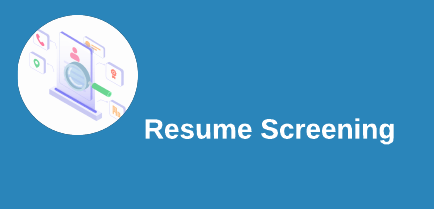
Use Cases for RPA in HR
Overtime Calculation and Compliance
Automating overtime calculation involves extracting data from timesheets using scripts or API integrations with timesheet systems like ADP or Workday. The process includes generating accurate overtime reports and performing validations to ensure compliance with labor regulations and company policies. Bots can flag any discrepancies for review by HR personnel, ensuring that all calculations are accurate and compliant with relevant laws and internal guidelines.
Integration with Timekeeping Systems
Bots can be programmed to retrieve employee attendance data from the punch card system, validate and process the data, and update the payroll records accordingly. By eliminating manual data entry and reducing errors, RPA can streamline the payroll process and ensure accurate payment of wages.
Leave Management and Approval
Employee Onboarding and Offboarding
Navigating RPA Implementation Hurdles
Implementing RPA often presents challenges such as integrating with existing systems, managing workforce change, and ensuring data security. These issues can hinder the successful deployment and benefits of automation if not properly addressed.
At Matacs, we help you navigate these hurdles with customized RPA solutions. From seamless integration and security to effective change management, we provide the support you need to overcome challenges and make RPA a valuable asset for your organization.
How Robotic Process Automation (RPA) is Revolutionizing HR Functions
RPA enhances HR efficiency by automating repetitive tasks such as data entry, payroll processing, and leave management. This reduces manual effort, minimizes errors, and speeds up HR processes, allowing HR professionals to focus on strategic activities.
Various HR tasks, including resume screening, employee onboarding, payroll processing, leave management, benefits administration, and performance evaluations are being automated. Automation streamlines these processes and ensures consistency.
RPA integrates with existing HR systems through APIs, data connectors, and middleware. It interacts with software applications just like a human user, ensuring smooth data exchange and workflow automation without disrupting current systems.
The onboarding process becomes much smoother with automation, which takes care of collecting new hire documents, setting up employee profiles, scheduling training sessions, and sending out welcome emails. This not only speeds up the entire process but also ensures that new employees have a seamless and efficient start.
Configuring RPA tools to meet data protection regulations and security standards ensures that sensitive employee information is managed securely. With encrypted storage and secure access controls, these tools maintain compliance with legal and regulatory requirements.
RPA bots are designed to handle exceptions by following predefined rules. For discrepancies, bots can flag issues for human review or escalate them based on set criteria, ensuring that exceptions are addressed appropriately.
Yes, RPA can automate performance management tasks such as tracking employee progress, collecting feedback, scheduling appraisal meetings, and generating performance reports. This helps in maintaining an organized and efficient appraisal process.
Book Your Free Consultation
Please fill out the form below and we’ll get back to you to schedule free 30-min initial consultation.

